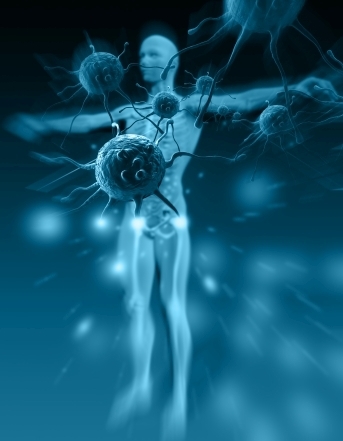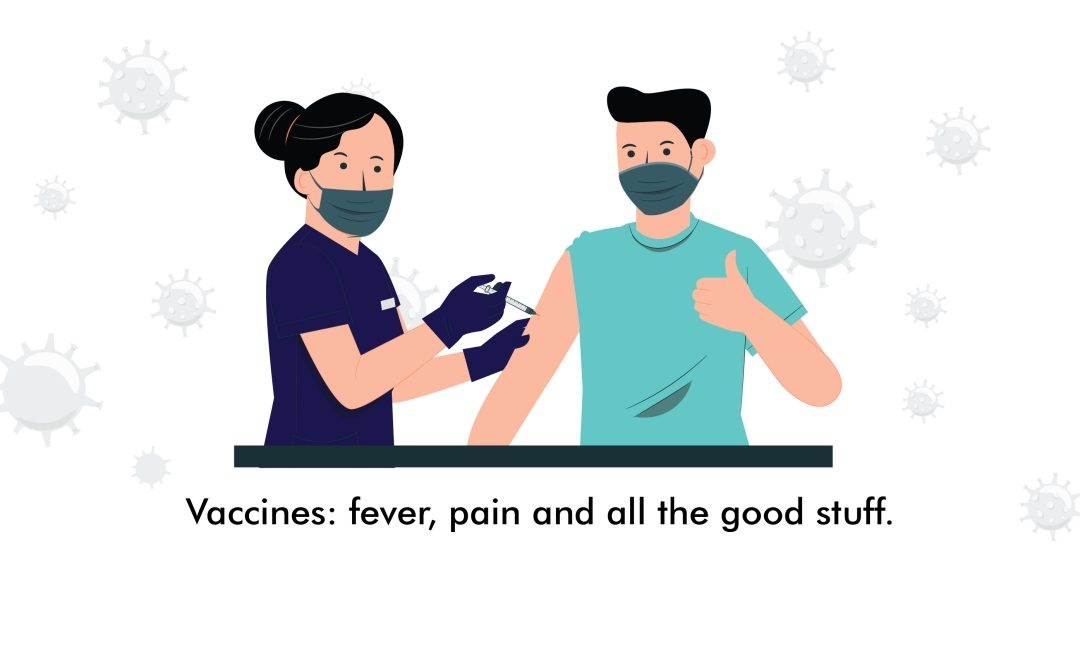So I had my second dose of the Moderna vaccine at 9 am on Thursday. After an uneventful 20 hours, the effects really hit around dawn the following day. What followed was a 15 hours of chills, sweats and extreme body pain, and then poof! Just like that, the symptoms had disappeared.
 What I am relaying is nothing new, but I hope that people are finally understanding that ‘symptoms’ during an illness are actually caused by your own immune system, and not the pathogen. The fever and body pain is due to chemicals released as part of the immune response. Some of these reset your body temperature to a slightly higher level (higher temperature denatures proteins and can kill or slow down the growth of an invading organism). The pain is due to inflammatory chemicals (the dreaded word cytokines that we often hear). In controlled amounts, these are absolutely essential. Too less, and you allow the pathogen to proliferate. When uncontrolled, they can be fatal. It is always a battle but at the end of the day, the symptoms are ALWAYS based on your own immune response.
What I am relaying is nothing new, but I hope that people are finally understanding that ‘symptoms’ during an illness are actually caused by your own immune system, and not the pathogen. The fever and body pain is due to chemicals released as part of the immune response. Some of these reset your body temperature to a slightly higher level (higher temperature denatures proteins and can kill or slow down the growth of an invading organism). The pain is due to inflammatory chemicals (the dreaded word cytokines that we often hear). In controlled amounts, these are absolutely essential. Too less, and you allow the pathogen to proliferate. When uncontrolled, they can be fatal. It is always a battle but at the end of the day, the symptoms are ALWAYS based on your own immune response.
One of the reasons I’m posting this is because I have encountered a couple of comments that indicate a misunderstanding of how things work:
- “I have a fever after my vaccine dose, so I have to be careful that I don’t spread the fever to others”.
- “You need to take extra care between the first and second doses, because the body is more vulnerable”
This makes me reiterate my point above. The symptoms are an ‘indication’ of the immune response. In the case of the vaccine, there isn’t a true infection, but the symptoms show up nevertheless.
All the Moderna/Pfizer vaccine does is convince cells to create a protein that resembles the spike protein of the virus. It’s like a fire drill at school, where the alarm sets off practice drills that help deal with the actual event later. The immune system sees the foreign proteins and creates T and B cells responses to handle the same. This happens with the first dose of the vaccine. There are no symptoms this time, because the immune system hasn’t built its T/B/antibody arsenal yet.
The second dose repeats the same thing, and the effect is like prodding the immune system with “hey, you better take these spike proteins seriously because they’re showing up again”. This time, the symptoms do show up, proving that the immune system is ready and responding. In turn, it also causes a longer memory T/B response (and hence a longer period of immunity). But at the end of the day, I’ll repeat that it ISN’T an infection, at least not a pathological one.
Let’s get into a more detailed breakdown of the two misconceptions I have listed above:
1.“I have a fever after my vaccine dose, so I spread the fever to others”.
Errm, no. There is no microorganism to begin with, so there’s nothing to transmit to others (especially in the Moderna / Pfizer case). In the other cases, there is a micro-organism, but it is either killed (Covaxin) or an imposter disguised to ‘look like’ SARS CoV-2 (AstraZeneca and J&J).
The challenge of creating a vaccine is giving it the ability to be immunogenic (trigger the immune system) without also being pathogenic (create the actual disease). In short, the fever isn’t the infection, it is a symptom of your immune system mounting a response to something it considers foreign. So there’s nothing to transmit.
- “You need to take extra care between the first and second doses, because the body is more vulnerable”
I am not sure where this concept could even come from. There is nothing special to be done. Your immune system has actually been doing this day in and day out, since the day you were born. There are millions of pathogens it encounters, and it figures out how to deal with them and which ones deserve longer term consideration. Along the way, you sense some of these interactions (battles) through the symptoms of fever and body pain. In some cases, the body needs your help to fight the battle (antibiotics, for example). There’s nothing different between any of those million immune responses and the one created by the vaccine.
 To summarize:
To summarize:
Viruses are genetically programmed to do what they can to survive, which is mutate and evolve ways to find hosts, multiply and spread to more hosts. Don’t get in your body’s way; it will do what it is genetically programmed for: detect these threats and deal with them.
Just ensure proper nutrition, control stress, get adequate sleep, and your immune system will do its job. But then, aren’t these standard requirements for each day of your life? Why is it that health considerations take priority only during a pandemic? That is something for all of us to ponder, well after the Covid battle has been won (or brought under control).
PS: I will leave pathogens like HIV, TB and plasmodium (malaria) out of this discussion, because they have evolved far superior methods. That is a topic for another day.

